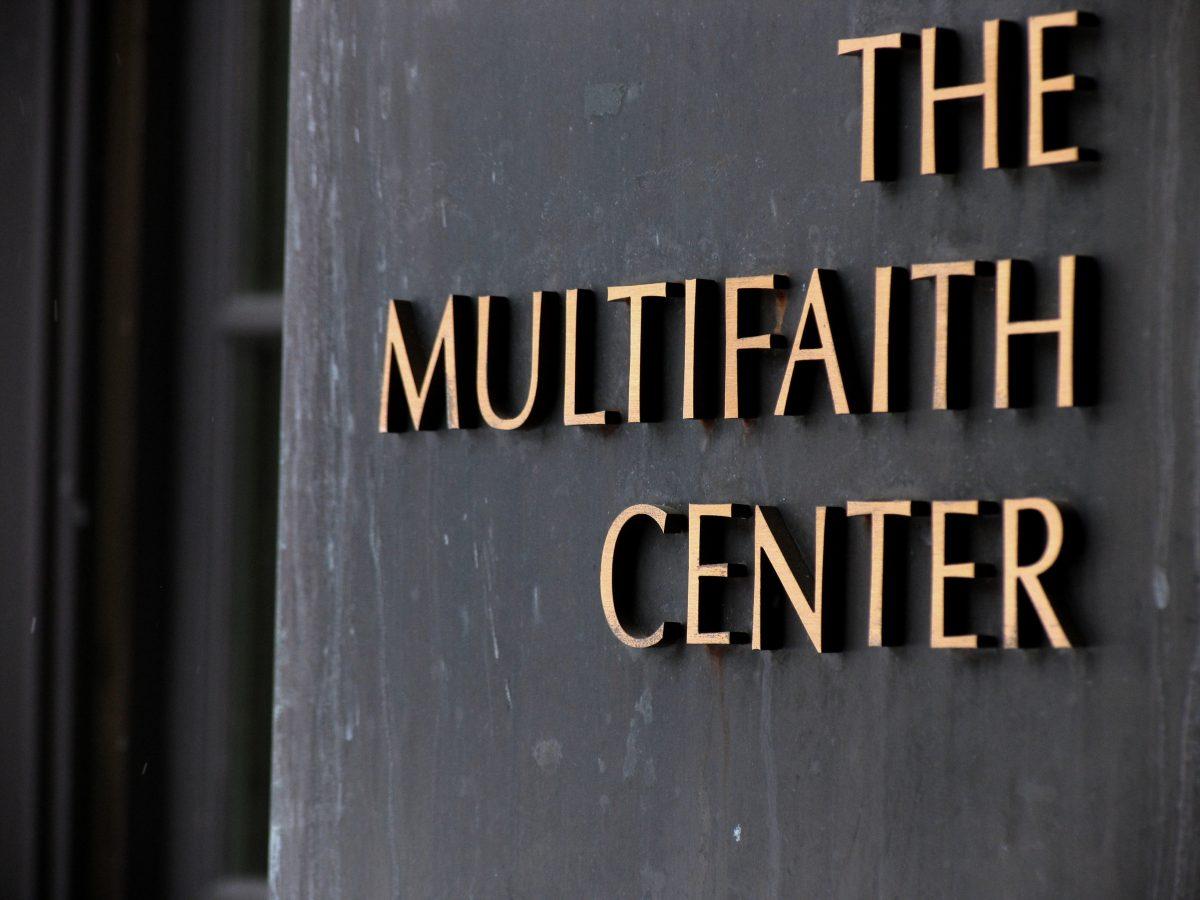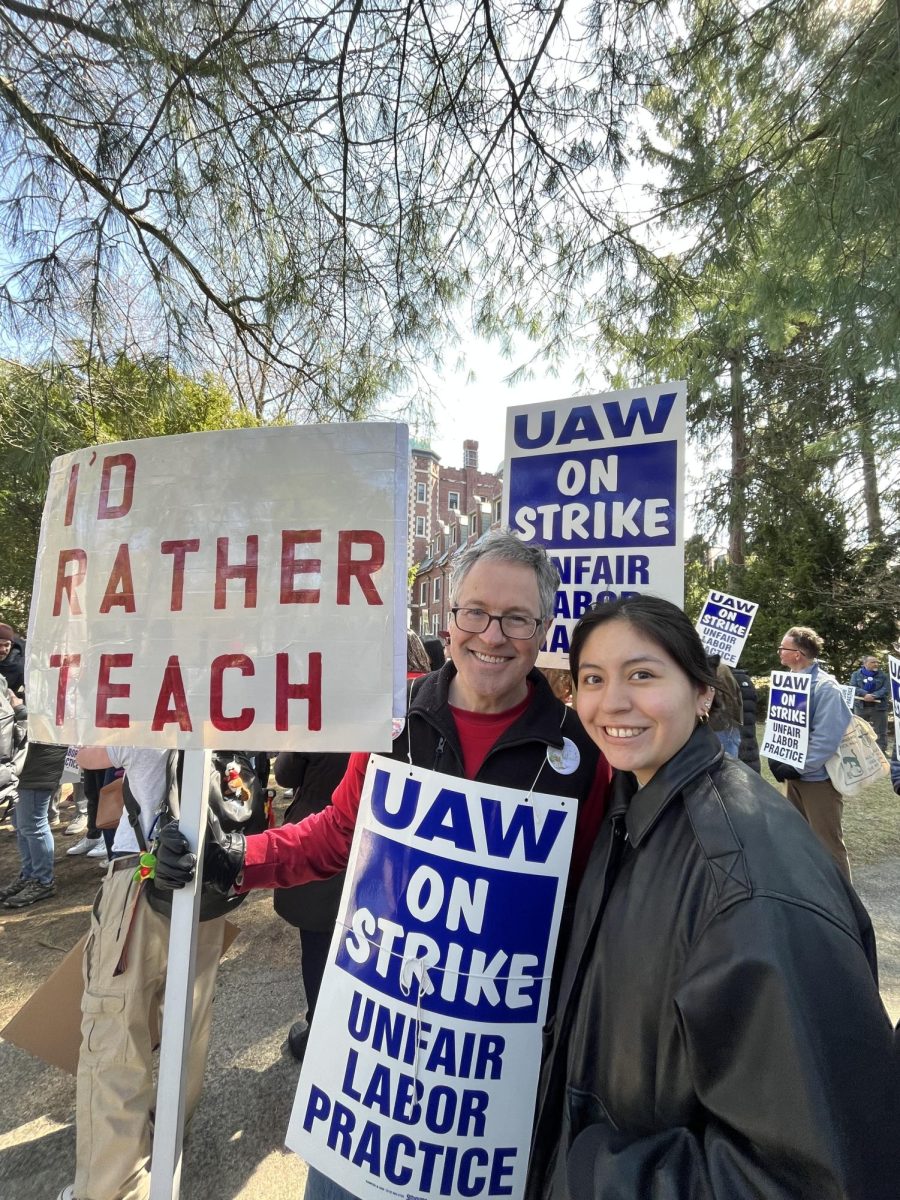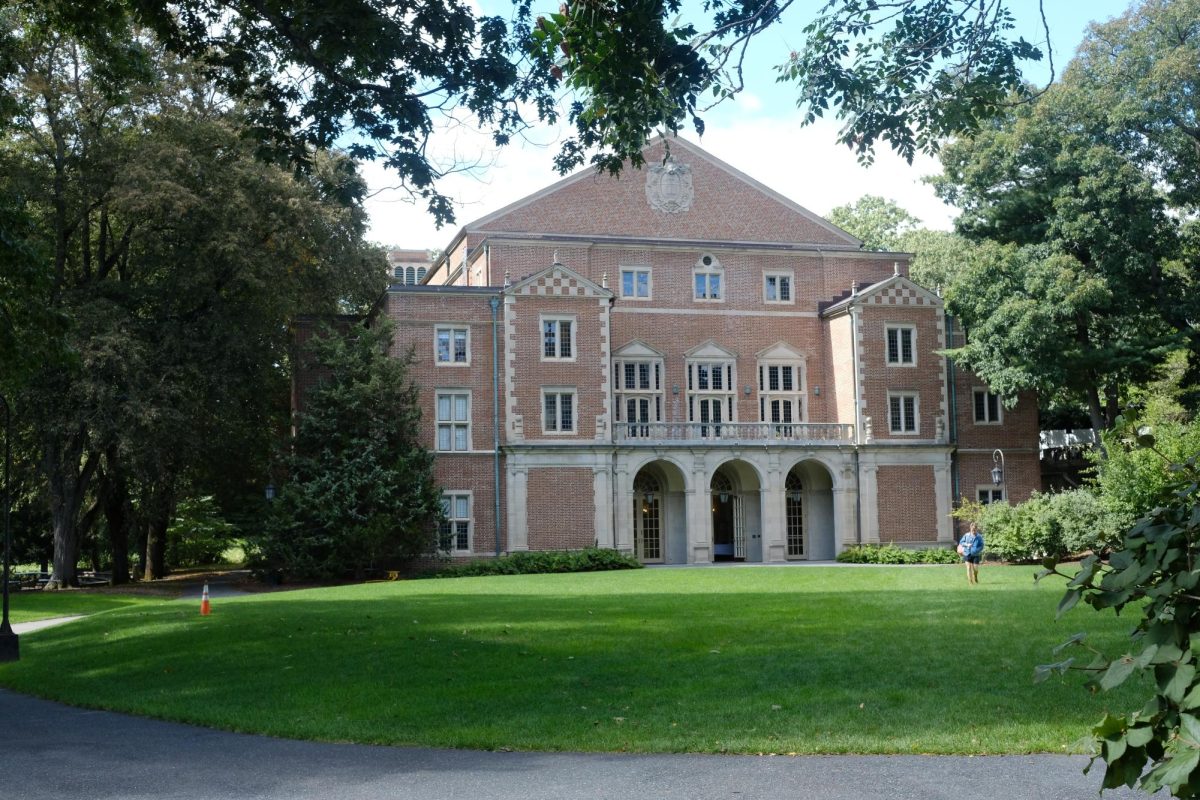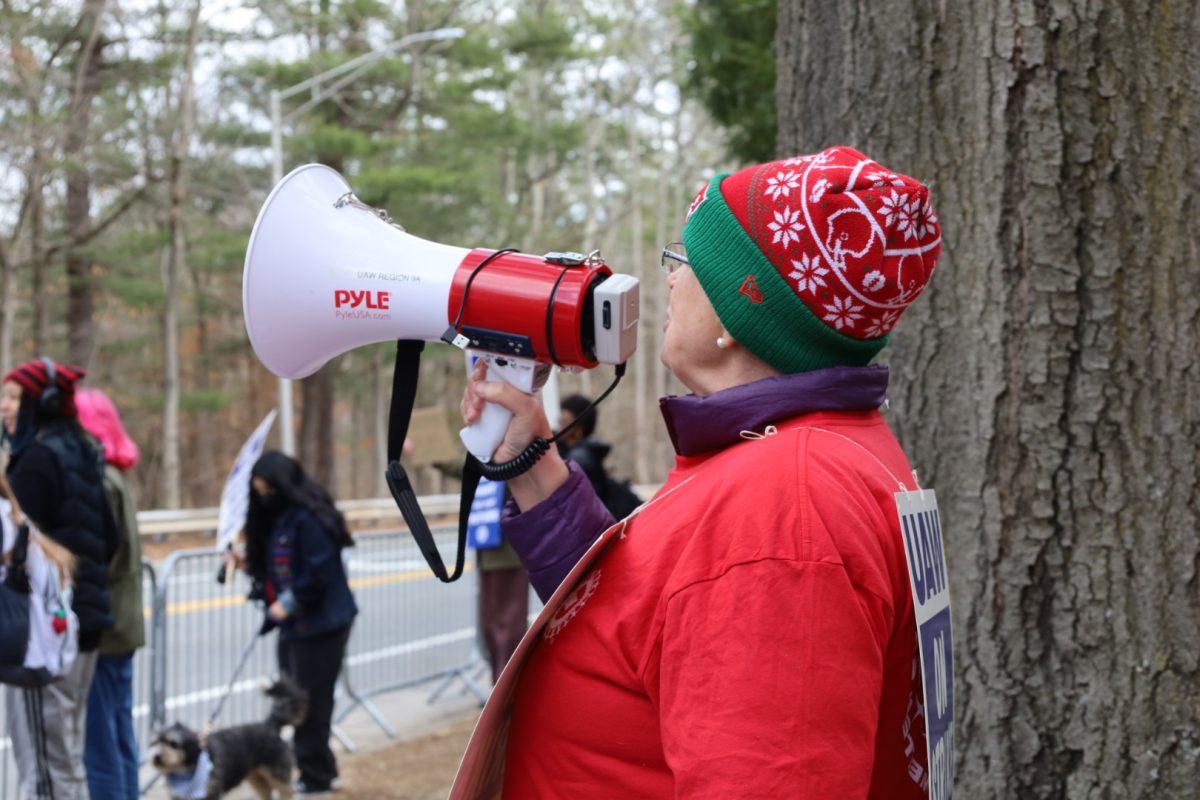Near the end of the fall semester, terrorist attacks and tragedies in Paris, Beirut and Baghdad prompted Slater International House and the Office of Religious and Spiritual Life to host a vigil as a moment of solidarity among students at Wellesley College. Students saw that the attacks in Paris were given more media coverage than the other attacks, so the vigil was organized as a show of support.
“The banner showed support for siblings impacted by global violence,” said Tiffany Steinwert, Dean of the Office of Religious and Spiritual Life. The Multifaith Council chose to place this yellow banner on a table in the Multifaith Center where it remained after the vigil for students to add messages. Most of these messages were of hope and solidarity. Continuing this sentiment, an altar for prayer had been converted to an altar of hope, a place for student encouragement and reflection.
Dean Steinwert noted that she passed the banner every morning and was able to see new messages each day. Towards the end of the semester, the banner was defaced with Islamophobic comments, which read “no Islam,” and “no Muslim.”
“I wanted to minimize exposure to this type of bigotry,” said Dean Steinwert, who immediately removed the banner. The banner is still sitting in her office. She next contacted Amira Quraishi, the Muslim chaplain, and Adele Wolfson, the Interim Dean of Students when she saw the comments. The comments were reported as a hate crime to campus police and access to the Multifaith Center was limited to only swipe access after 7 p.m.
The Multifaith Council, then members of Al-Muslimat and Wellesley Arab Women Association (WAWA) were notified on Jan. 27. “I personally was notified through a member of [Al-Muslimat] who was also on Multifaith Council,” said Houda Khaled ’16, the president of Al-Muslimat (ALM), an organization for Muslim members of the Wellesley community
This act occurred during finals period of last semester, fall 2015, an already stressful time for students given the pressures of final examinations
“I think most people in ALM and I, myself, understand why no one was notified at the time…this is the kind of thing where if you were to tell students during finals it would be forgotten” stated Khaled.
“It would be hard to get the attention needed from the college had the comments been addressed at that point,” Dean Steinwert said, referring to attention from Wellesley students.. However Khaled noted that she and the other members of ALM were troubled that they weren’t immediately notified of the incident when the spring semester started. “Other organizations with Muslim students weren’t informed either. WAWA [Wellesley Arab Women Association] wasn’t informed until later and WASAC [Wellesley Association of South Asian Culture] wasn’t informed until much later” Khaled said.
Khaled noted the importance of informing Muslim students of Islamophobic incidents on campus saying, “When these sorts of things happen… it’s important to take the Muslim student’s perspective into account”. The administration planned a discussion to talk about students’ questions about Islam, as well talking about people’s fears of Islam and where they come from. “It made a lot of Muslim students uncomfortable as a response to hate speech,” said Khaled, “It felt like Muslim students would have to explain themselves to the community.”
Dean Steinwert noted the fall semester had already been a troubling semester with growing Islamophobia.
The comments on the banner were containable and could be easily removed, as opposed to hateful posts on Yik Yak or other social media. Khaled emphatically agreed about the growing Islamophobia on campus, saying “I’ve been informed of quite a few incidents between individuals on campus. There is a bad atmosphere on Yik Yak.” Khaled mentioned another incident where a Muslim student was confronted directly about their social media activism about Beirut, where they were told that the victims of the bombing were terrorists.
Quraishi was not particularly surprised about the Islamophobia on this campus, noting, “Wellesley is representative of the country and the world. If we see it in the country, we will see it on campus.”
As a group dedicated to fostering religious pluralism, the Multifaith Council was deeply saddened.
“The Multifaith Council is heartbroken at this incident of Islamophobia. As the Wellesley College community, we pride ourselves on being a safe space where diverse viewpoints are respected” its statement said.
On Monday, Feb. 8, President H. Kim Bottomly sent an email to all Wellesley students stating that March is “Understanding Islam Month” and upcoming opportunities for dialogue will be provided by the Office of Religious and Spiritual Life. The email read “This will be a time for dialogue for the Wellesley community and an opportunity to discuss perceptions of Islam, as well as the experiences with Islamophobia and bias that our Muslim students describe in their daily lives, on campus and beyond.” The email, however, did not specifically mention the incident regarding the banner, which many students felt was insufficient on the part of the Wellesley College administration. On Wednesday, Feb. 10, President Bottomly followed up with another email, this time specifically writing about this incident.
“Wellesley College rejects any instance of hate speech, anonymous attacks and bigotry in all its forms. This includes the anti-Islamic language that was used to deface a banner in the Multifaith Center at the end of last semester,” the second email said.
“The Muslim students were incredibly upset,” said Khaled regarding the first email. However Khaled did say when Bottomly heard about the concerns of the Muslim students, she was very apologetic.
To address this incident, there will be a gathering in the Multifaith Center at 12:30 p.m. on Feb. 17, planned by a coalition that includes the Wellesley Arab Women’s Association (WAWA), Al-Muslimat and the Multifaith Council. The gathering will focus on discussion and serve as a space to ask questions.
Members of the Office of Religious and Spiritual Life emphasized that this gathering will not be the full extent of the Wellesley community’s reaction.
“This incident teaches us how to confront Islamophobia,” she continued, noting that the question of who the Wellesley College community is is directly related to how it responds to moments like this one.
Khaled said the talk on Wednesday would be more focused on confronting Islamophobia on the campus, “It’s now focused about talking about Islamophobia in the community and how we as a community should respond to Islamophobia on campus.”






